Happy birthday Arunraja Kamaraj: Nenjuku Needhi director on why the Article 15 remake was a risk worth taking
Filmmaker Arunraja Kamaraj on his latest release, Nenjuku Needhi, the Tamil remake of Ayushmann Khurrana's Article 15.
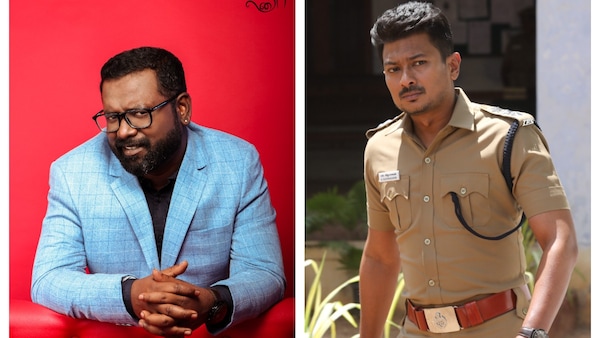
Last Updated: 10.23 AM, Jun 15, 2022
Nenjuku Needhi, the Tamil remake of Article 15, hit the screens on May 20. The film, featuring Udhayanidhi Stalin, is still in theatres, despite the box office might, Vikram. The surprise resonance, the chord that Nenjuku Needhi struck, has turned the spotlight on its maker, Arunraja Kamaraj, who turns a year older today. “I was restless before the release of my film; now I'm a little confident,” he smiles. And, this got me reminded of a dialogue from Kanaa, his debut film: "Indha ulagam jeichiduvennu sonnaa kekkaadhu; aana, jeichavan sonnaa ketkum."
Here are the excerpts from a 40-minute conversation with Arunraja Kamaraj:
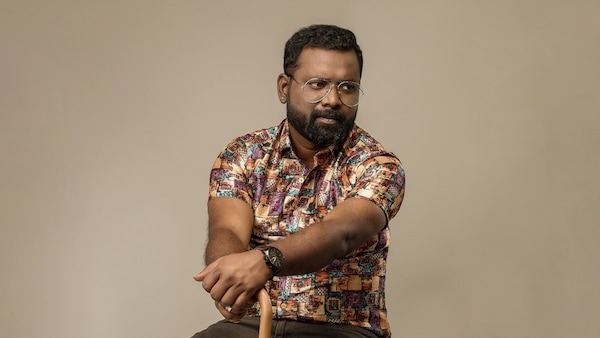
Adapting stories from other languages isn't new. Your thoughts when you were offered a chance to direct Nenjuku Needhi.
When you make an earnest attempt to tell a story, it works. If the story is right, half the work is done since the audience loves good stories. Nenjuku Needhi is an honest film. And, any remake carries the burden of living up to the original. However, Nenjuku Needhi is not a frame-by-frame copy of Article 15. Both the films discuss caste discrimination and are based on several true stories. But, how many of the Tamil-speaking people would have caught Article 15? Nenjuku Needhi is for those.
Considering that both Kanaa and Nenjuku Needhi have a message; do you identify yourself as a serious filmmaker?
Caste discrimination is rampant in many places. Even today, it is deep-rooted in our culture. I am glad I explored a subject that needed to be explored. I think it comes from a sense of responsibility as a creator. A film like Nenjuku Needhi must reach the masses. Filmmaking is a form of creative expression and is the most precious of all. Any piece of work should create a disruption. Whatever I have to say, I say it through my art, through the medium I'm familiar with: cinema. As a creator, you make something and send messages to the crowd. Sometimes, it comes from anger, helplessness and frustration with what’s going on around us. Your work should reflect your personality, thoughts, ideologies and character. Nenjuku Needhi aligned with my values.
Article 15 was a brand in itself. What did you bring to the table as a filmmaker, in Nenjuku Needhi?
It is not a film about how cops should be. The film tries to do a lot of things while being an interesting, investigative piece. A film cannot change society, but it can accomplish certain things. Societal evils we don't talk about are often the most dangerous, and Nenjuku Needhi asks difficult questions. My intention was not to educate the audience about the history of the caste hierarchy. I wasn't trying to offer solutions, either. I was trying to get people to talk about it. In other words, I wanted to send you home with some questions.
Nenjuku Needhi was not an easy film to make, mind you. There's no 'hero fight', and 'opening song'. Initially, there was so much negativity, because it's a "Udhayanidhi Stalin film". It was politicised unnecessarily. Further, my ability to direct a serious film like this was also questioned by many. But I didn't let any of those bother me. Udhayanidhi Stalin and my producers trusted me. That was more than enough.
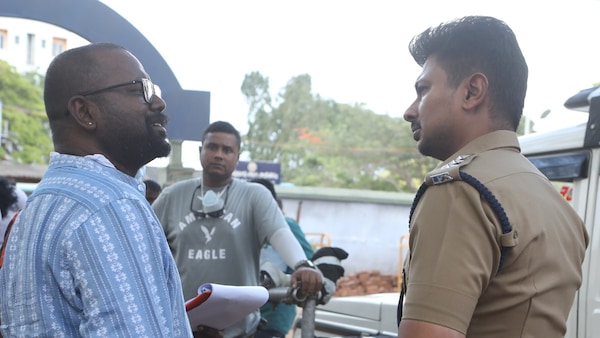
All right. But Udhayanidhi Stalin seemed a bit uncomfortable as a cop.
I beg to differ. I was confident Udhayanidhi Stalin would be able to pull off this role. First, let's not compare him and Ayushmann Khurrana. Though Udhay featured in lighthearted films at the beginning of his career, he made a gradual shift towards content-driven projects like Manithan, Nimir and Psycho. A film like Nenjuku Needhi wouldn't have worked with a mass hero. And, this played to the strength of Udhayanidhi Stalin. His character is not the typical Kollywood cop; not a swag hero. Also, he's not as straight as someone who wants to make a difference in society.
Udhay delivered exactly what I wanted; be it expressions or dialogues. Truth be told, he was a little apprehensive about wearing the khaki; that was during the discussion stages. Because he never imagined himself playing a cop. Once we finalised his looks and started shooting, he handled things with ease. Since I directed him, I could vouch for it. We wanted our film to be authentic. So, a lot of research work went into the making. Udhay and I met cops including senior IPS officers to observe the way the proceedings go on at a police station. You need to know the people you are trying to connect with.
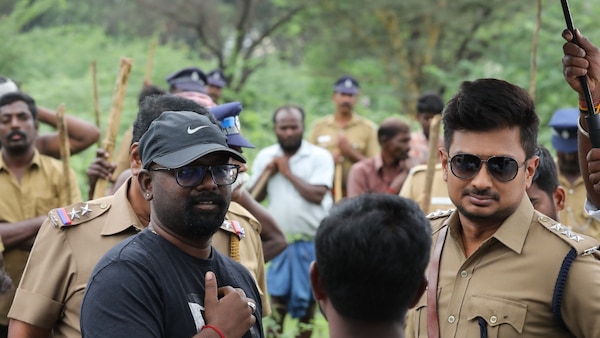
Makes sense. But Nenjuku Needhi seemed more political, and it looked like a few things were incorporated to suit Udhayanidhi Stalin's image.
I don't think so. I didn't forcefully fit anything into the script of Nenjuku Needhi for Udhayanidhi. People will speak anything that they want. Those are their assumptions. But, the whole idea of remaking this film in Tamil was to have a conversation. If I were to make a propaganda film, I would have done things more deliberately! (Laughs)
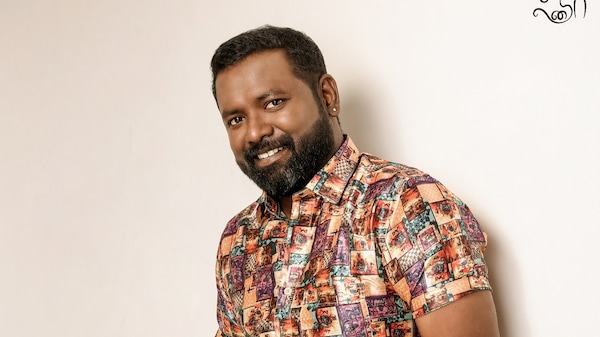
Whose idea was it to title the film, Nenjuku Needhi?
Nenjuku Needhi is the title of the autobiography written by former Tamil Nadu Chief Minister M Karunanidhi. Actually, it was my idea, which Udhay liked. Although he was convinced, he had to run the idea by his family members. The moment was emotional for him. Since the film is about social justice; the name seemed fitting.
You lost your wife to COVID-19 in May last year. Have you healed? And, how proud she would have felt to see the film?
Yeah, it has been a year, and time flies by. She's still with me; watching and observing things that I don’t see… (like how it happens in Interstellar. She used to push me constantly and motivated me to do better. She still does the same, from somewhere, I believe. Or else, I don't think I would have stepped out, and made a film.
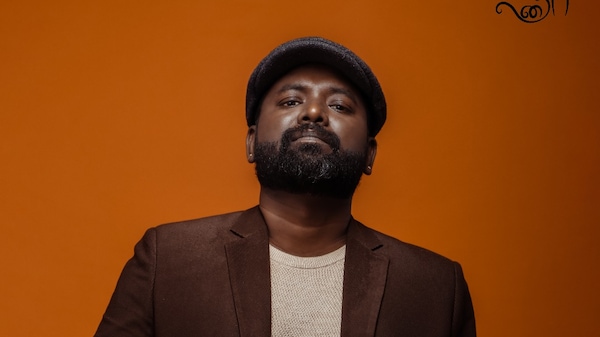
I am sure. What's next?
Every profession is difficult and filmmaking also comes with a bagful of challenges. Enna reference-a eduthukkura varaikkum, naan odikitte iruppen! (Smiles) I want to do good films, different films and radical films… Something that strikes a chord with the audience! I don't take my work for granted because, with your precious one, credibility comes forth. No filmmaker can afford to be overconfident or cocky. Anything can go wrong at any time. It's human, after all. The idea is to trust your instincts and let be. Otherwise, I have four scripts, for now.
Who do you want to direct in future?
Rajini sir, Vijay sir, Ajith sir. And, the list goes on. (Laughs) I wish I could cast all of them in the same film! Dreams should be big. Because, if people don't laugh at what you're saying, it means you aren't dreaming big enough.

 Premium
Premium